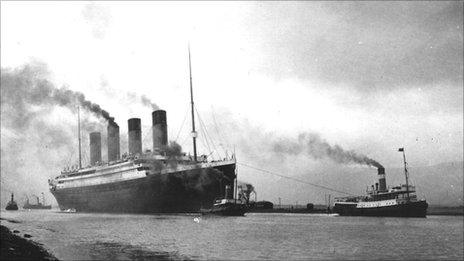Memorial to 'jinxed' Titanic helmsman Robert Hichens unveiled in Aberdeen
- Published
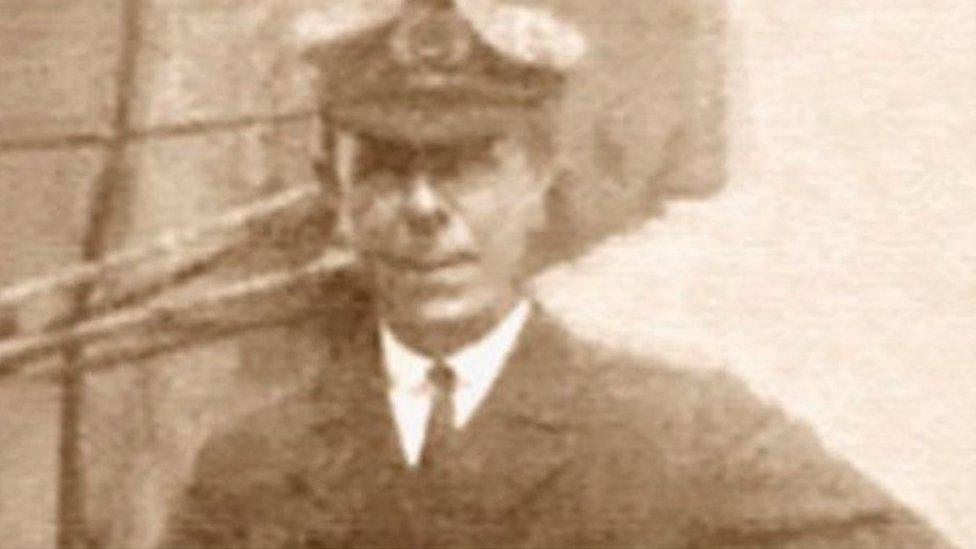
Titanic helmsman and survivor Robert Hichens was found to have been buried in Aberdeen
Robert Hichens died in 1940 - 28 years after being at the helm of the Titanic when she hit an iceberg and sank.
More than 1,500 people perished when the doomed liner sank on her maiden voyage in 1912. More than 700 survived.
The former Titanic quartermaster ended up working on a cargo ship but was found dead, when it was moored off Aberdeen, from heart disease.
An unmarked communal grave was traced to the Granite City in 2012. Now a memorial headstone has been unveiled.
Hichens was the man who, when at the peak of his career, steered the Titanic in a bid to avoid a head-on collision with the iceberg.
The manoeuvre came too late to completely avoid the looming danger, and the damage to the hull ultimately sank the "unsinkable" vessel.
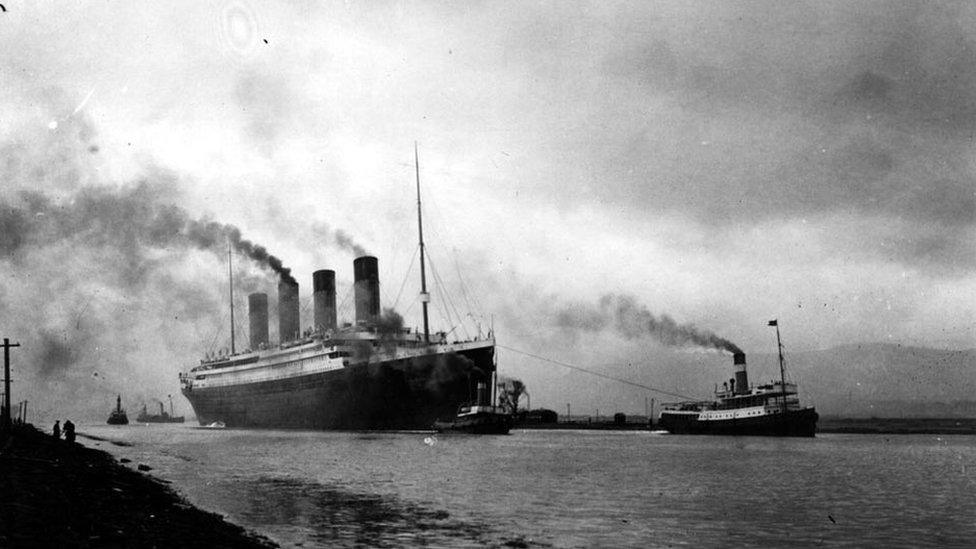
The Titanic set sail in 1912
He was then ordered to leave the wheel of the liner, less than an hour after the collision, and took charge of a lifeboat.
Hichens rowed several passengers to safety, and was among those then taken onto New York on board the Carpathia which had been sent to the Titanic's aid.
He was played by Paul Brightwell in the 1997 blockbuster film Titanic, where he was shown in a confrontation with one of the passengers, Molly Brown, played by Kathy Bates.
In the movie she urges him to turn the lifeboat back to the ship to rescue other survivors, but he refuses.
In real life, the aftermath of the disaster saw his marriage break up, and he became a heavy drinker. Hichens eventually ended up in jail for attempted murder.
He latterly worked on a cargo ship in the Second World War, delivering coal.
Hichens - born in Newlyn, Surrey - was found dead in his bunk from heart failure off Aberdeen in 1940, at the age of 58.
'Seen as jinxed'
His family thought he had been buried at sea.
However, their research eventually revealed an unmarked grave in Trinity Cemetery in Aberdeen in 2012.
His great granddaughter, Sally Nilsson, travelled from Reigate in Surrey to the grave seven years ago.
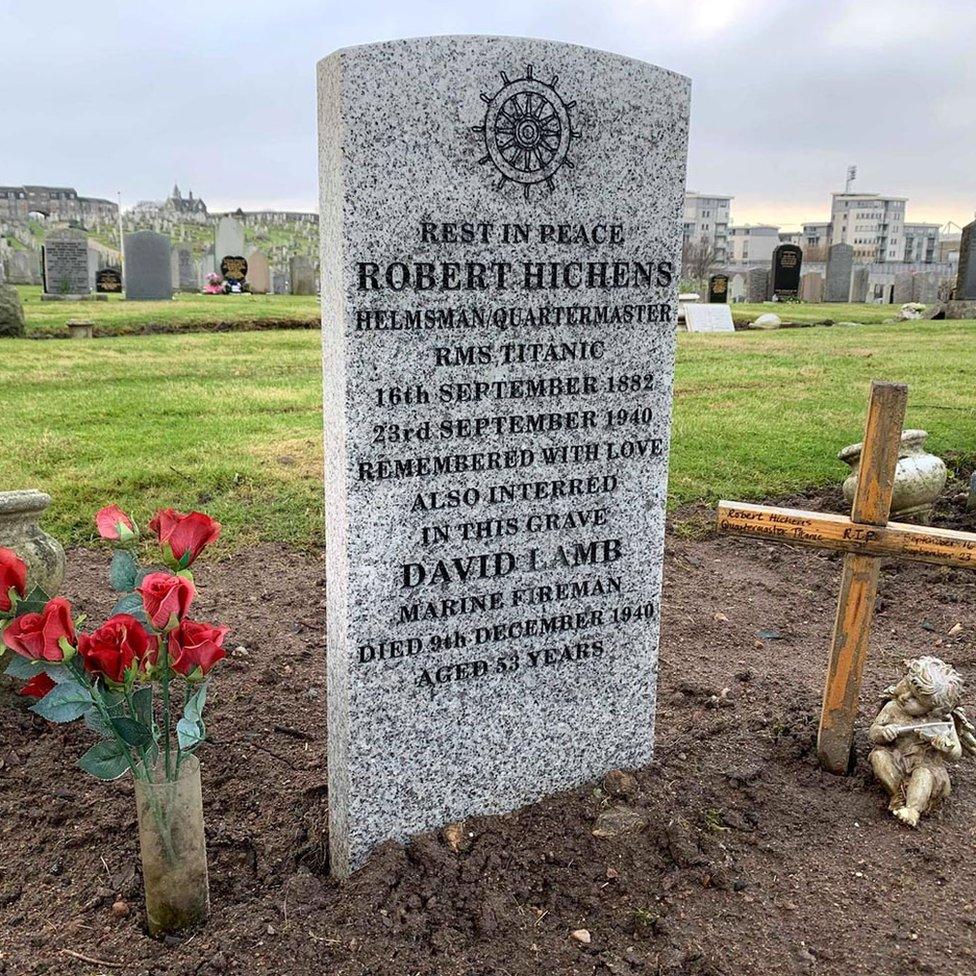
The new memorial was unveiled on Thursday afternoon

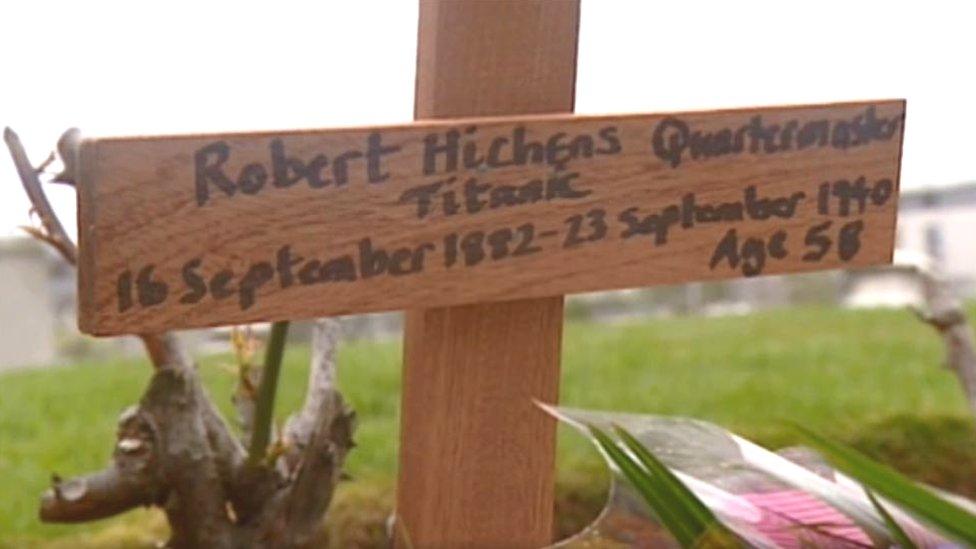
A wooden cross was initially placed at the site in 2012
She placed a wooden cross at that time at the communal grave where he was buried.
"I know he's here. It means everything", she said at the time.
Of his life and career after the disaster, she explained: "He would have been seen as jinxed.
"Other sailors would have known he was the man at the wheel of this luxury liner, and would not want to sail with him any more. That was his problem."
'Pauper's grave'
Now a memorial headstone marks the spot of his grave.
She said after the unveiling: "We are so delighted - the family of Robert Hichens - to be able to unveil the headstone for him.
"He finally gets the respect he deserves - a seaman doing his duty."
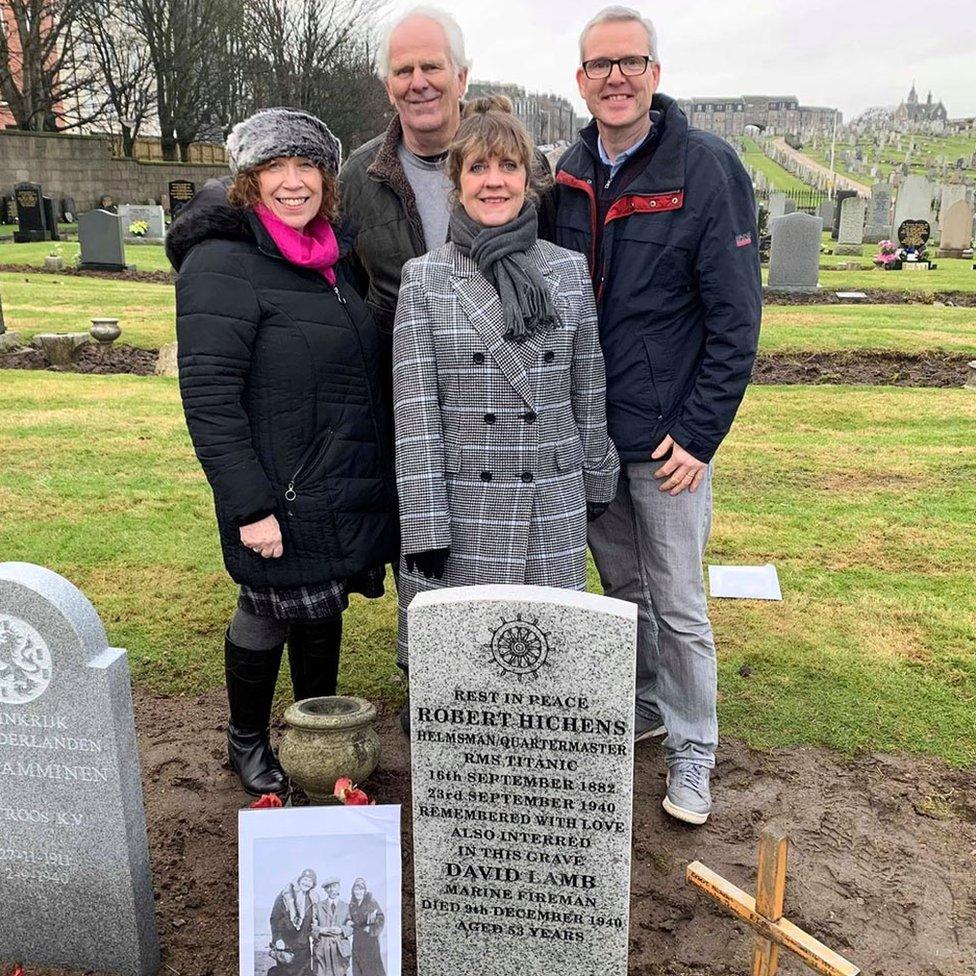
Relatives proudly unveiled the memorial headstone

Relatives are determined their ancestor should not be remembered as "the man who sank the Titanic".
Ian Burnett, Aberdeen City Council's bereavement services officer, said of the final resting place: "It was the nearest place to where he died.
"But it was the responsibility of the shipping company, because he died on board the ship, hence the reason they had bought the grave.
"It's pretty much along the lines of a pauper's grave, but from a company."
He added: "It is quite significant with his family, to get him eventually commemorated.
"It's gone full circle and we've now got that memorial."
- Published22 January 2016
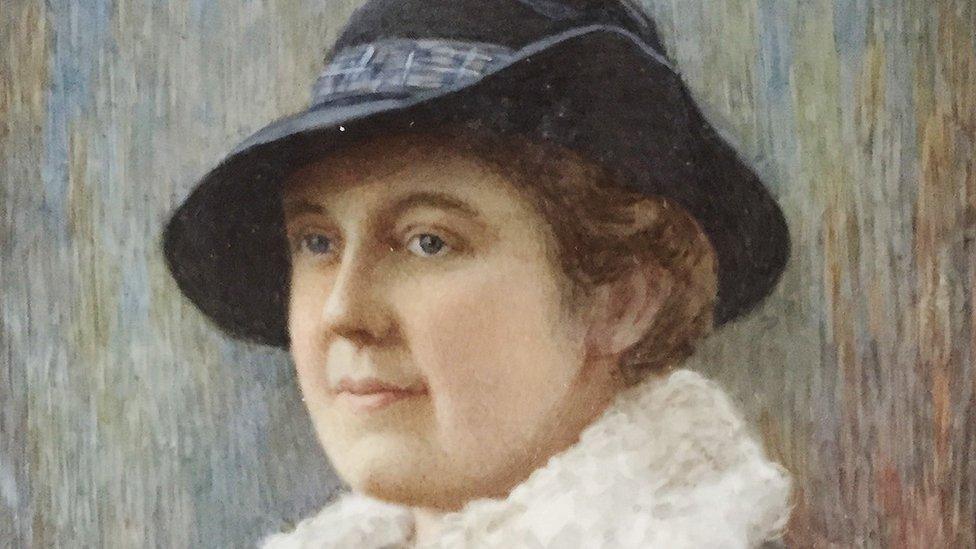
- Published15 April 2013
- Published13 April 2012
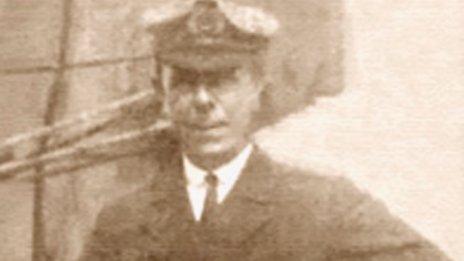
- Published12 April 2012
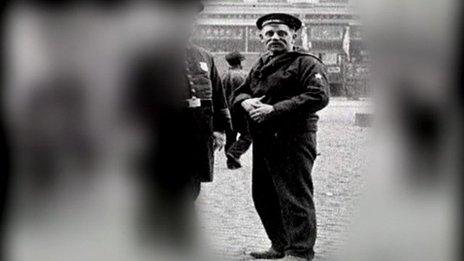
- Published22 December 2011
- Published31 May 2011
